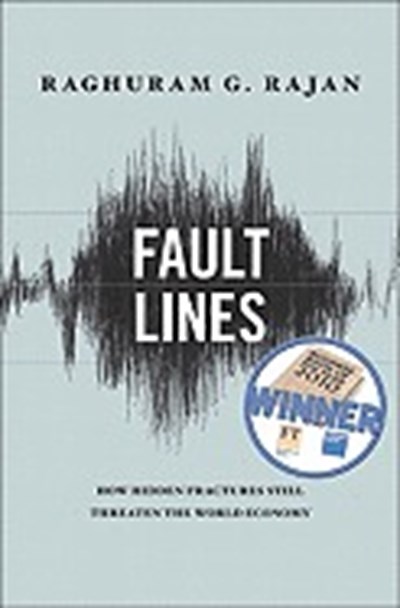Most Recent Articles
-

Blog / News & Opinion
Amazon's Best of 2010
By 800-CEO-READ
Amazon has announced their Best of 2010 list, and a business book cracked the top 10 overall choices. Michael Lewis's The Big Short: Inside the Doomsday Machine barely did so, coming in at number 10. (Two other books in the top ten that may appeal to nonfiction readers are The Immortal Life of Henrietta Lacks by Rebecca Skloot and The Warmth of Other Suns: The Epic Story of America's Great Migration by Isabel Wilkerson, which came in at numbers one and five respectively.
Categories: news-opinion
-

Blog / News & Opinion
ChangeThis: Issue 76
By 800-CEO-READ
Forget Cinderella, Find Fred Astaire by Avivah Wittenberg-Cox “Most companies would like to become more gender balanced at all levels, with women and men dancing together in a smooth and natural way. They have been trying for decades to attract, retain and promote more women. They have tried to grow their female customer bases.
Categories: news-opinion
-

Blog / ChangeThis
Change is the New Constant: Leading Organizations That (Can) Thrive in Crises
By Alan Lewis
"Most organizations believe they are not working as well as they used to. They blame the rapid and unpredictable changes that are going on around them. But many of them have failed to grasp one fundamental truth: CHANGE IS THE NEW CONSTANT. To be successful in the 21st century requires an approach that change is here to stay, so one of the most critical components for success is now the ability to build a culture to adapt and thrive in change."
Categories: changethis
-

Blog / ChangeThis
Through the Fog: Solving Health Care in Companies
By John Torinus Jr.
"Major change usually comes off a platform of crisis, and I think everyone can agree that crisis conditions surely exist in health care economics. The nation's health care bill has been doubling every eight years for the last four decades. The runaway costs have been busting the budgets of federal, state and local governments, and they have bled the bottom lines of corporations. [...] We began our quest with a simple goal: neutralize the upward spiral in health costs so we can avoid annual premium increases for the company and its co-workers. How did we do this? As CEO and now chairman, I asked our 460 workers to take ownership of their health and healthcare costs, and we gave them the incentives and information to become expert consumers of health care."
Categories: changethis
-

Blog / ChangeThis
Make Your Web Site a Real-Time Machine
By David Meerman Scott
"So ubiquitous have Web sites become that it's hard to believe they've been with us for less than 20 years. It was the 1994 introduction of the browser-enabled World Wide Web that gave birth to the Web site. Since then they have gone through about four stages of evolution: [...] Now, we're entering a fifth era of the evolution: transformation of the Web site into a real-time marketing (and sales) machine. This is the natural evolutionary outcome of a process that started with a new way to slip brochures under people's doors."
Categories: changethis
-

Blog / ChangeThis
The Amish and the Case for Humility
By Erik Wesner
"When they're not around you or me, the Amish speak a language called Pennsylvania German. Demut is their word for humility. And Demut isn't just for the Amish. Why does humility matter? It matters in business. It matters in life. It matters in our relationships. "Celebrity" is a word you don't often see next to "humble." If you're gunning for stardom, there are only so many spots. Unless you're one of a select lucky few, you're bound to be disappointed, or worse. Humility is healthier. A humble approach in a relationship helps one recognize the other person's inherent value and needs. Humility fosters human understanding. If you're guided by humility in business, you are less likely to blow up the company by going too big, too quick. Humility checks you when that demon in your brain says "more." The one you know you should ignore. And as some find out the hard way, humility can save a heck of a lot of pain."
Categories: changethis
-

Blog / ChangeThis
Turning Social Capital Into Financial Capital
By Marcia Conner
"Social media has the potential to dramatically improve the inner workings of every company. The interstitial connections can quickly cross business silos, inform decision making, educate people at all levels, and allow employees—especially new entrants—to pick up the natural rhythms of how people around them work. But only if the company allows access to social networks. And most companies don't."
Categories: changethis
-

Blog / ChangeThis
Forget Cinderella, Find Fred Astaire
By Avivah Wittenberg-Cox
"Most companies would like to become more gender balanced at all levels, with women and men dancing together in a smooth and natural way. They have been trying for decades to attract, retain and promote more women. They have tried to grow their female customer bases. They are embarrassed by the all-male faces on the boardroom website, dancing to the tune of their own drummers. Most have gotten rid of the photos, but not the problem. Yet some companies have tried really hard, for a really long time. And almost everyone, male and female, is suffering from gender fatigue. [...] Why so much effort for so little result? Because we have over-focused on kissing Cinderella awake from her slumber and inviting her to the ball. But nobody ever bothered checking if the prince can actually dance."
Categories: changethis
-

Blog / Excerpts
An Excerpt from The Leader's Guide to Radical Management
By 800-CEO-READ
We chose Stephen Denning's book, The Secret Language of Leadership, as the best book on leadership in our first annual business book awards in 2007. We first met him in 2008, when we were fortunate enough to have him come speak at our author pow-wow. We were so impressed by the talk he gave that, when we were planning this year's gathering, there was no question as to whether or not we'd invite him back.
Categories: excerpts
-

Blog / News & Opinion
And the Winner of The FT/Goldman Sachs Award Is...
By 800-CEO-READ
The Financial Times and Goldman Sachs Business Book of the Year was announced last night at The Pierre in New York City, and it was something of an upset. Raghuram Rajan's Fault Lines: How Hidden Fractures Still Threaten the World Economy, released by Princeton University Press in May, beat out more widely recognized and commercially successful books like Michael Lewis's The Big Short and Andrew Ross Sorkin's Too Big to Fail (which was the runner up last night, and which we named The 800-CEO-READ Business Book of the Year in 2009). The award was presented by Lionel Barber, FT editor and chair of the judging panel, and Lloyd Blankfein, the chief executive of Goldman Sachs who recused himself as a judge because of the number of books on the shortlist about the financial crisis—books he was a character in having been the head of a major Wall Street firm during the crisis.
Categories: news-opinion, publishing-industry


